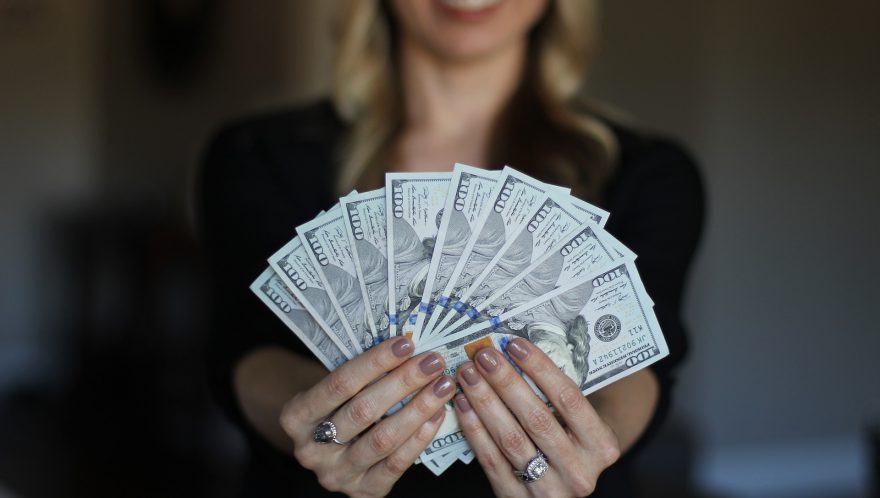While investors are understandably feeling nervous in these uncertain times, it’s a good time to branch outside of the U.S., say four top money managers who were interviewed by Bloomberg. Opportunities are cropping up in Europe, Japan and emerging markets, though each manager had different ideas of where they would put the hypothetical $10,000 Bloomberg gave them to work with. Eric Balchunas, a Bloomberg Intelligence senior analyst, also weighed in on which ETFs look attractive outside of the U.S., for those investors wanting to take the ETF route.
Emerging markets severely underperformed in the decade leading up to last year, garnering a slim 1.8% annualized over 10 years. But they may be on the brink of a breakthrough, says Sarah Ketterer, CEO of Capital Management. As more nations are willing to take a stand against countries that misbehave, improved fiscal and monetary behavior is likely to become more widespread amongst emerging markets. And stocks are cheap, with the emerging markets index trading at a 20-year low compared to the U.S. market. Meanwhile, if you want ETFs, the iShares Core MSCI Emerging Markets ETF is among the most popular because of its low fees and broad exposure—though investors should be aware that China accounts for 28% of the fund, adds Balchunas.
Shifting out of equities and into bonds may be the direction investors want to go, since equity valuations are still expensive, contends Ian Harnett, a chief investment strategist at Absolute Strategy Research. Investors may be too overconfident that inflation has been tamed, and the aggressive interest rate hikes that began last year have yet to be fully felt. With all the uncertainty, buying into 3- to 5-year U.S. Treasuries at 4% is appealing. Investors who have the stomach to take on more risk should look beyond the U.S. and at Japan, where the yen’s low valuation and the reopening of the economy could prove a winning investment. However, if the Fed continues to tighten, Harnett expects credit markets to feel the brunt. Likewise, if economic pressures force the Fed to pivot, equities could plunge. As for ETFs, Balchunas pointed to the JPMorgan BetaBuilders Japan ETF, which is relatively new but has already raked in $7.1 billion in assets thanks to its low 0.19% fee and its broad exposure to 277 Japanese stocks—though it doesn’t hedge the yen.
Investors should increase their European equities allocations, advises Russ Koesterich, a portfolio manager at BlackRock Global Allocation Fund. Though the impact from the war in Ukraine was deep, it appears that Europe avoided an energy crisis. Valuations are also fairly cheap amongst European equities, especially in the financial sector, and Europe is a solid alternative for investors who want to avoid investing in China, whose reopening will be beneficial to the European economy. Balchunas highlighted the iShares Core MSCI Europe ETF as a good way for investors to gain broad exposure to the whole continent for a low 0.09% fee.
As the dollar declines and overseas valuations get more attractive, those investors who have internationally diversified portfolios will stand to gain, says wealth advisor for CI RegentAtlantic Private Wealth Melissa Weisz. Foreign markets are widely expected to outperform U.S. markets for the next 15 years, but there are still many unknown variables, such as the war in Ukraine and a potential energy crisis, as well as China’s reopening. On the ETF side, Balchunas likes the iShares Core MSCI EAFE ETF, which offers an inexpensive way to gain broad exposure to more than a dozen countries around the globe, with Japan, the UK, and France being its biggest holdings.
Each of the money managers were asked by Bloomberg for alternative places to put their $10,000, outside of traditional financial avenues. Under-the-radar start-ups, found on well-known crowdfunding sites, could offer investors a place to get in on the ground floor on something that could win big, says Ketterer. “Buy chickens,” says Koesterich, while Weisz said she would put money into family-friendly vacation spots that offer autism-friendly accommodations for her special needs child. Along those same lines, Harnett advised investing in one’s family. “Taking time to be together with family, exploring new places and sharing new experiences is the best return on investing time and capital that can ever be achieved,” says Harnett.
———————————————
Validea runs stock and ETF models based on investment strategies with proven long-term track records. If you’re new to Validea, consider taking a look at our product overview or introductory videos.


